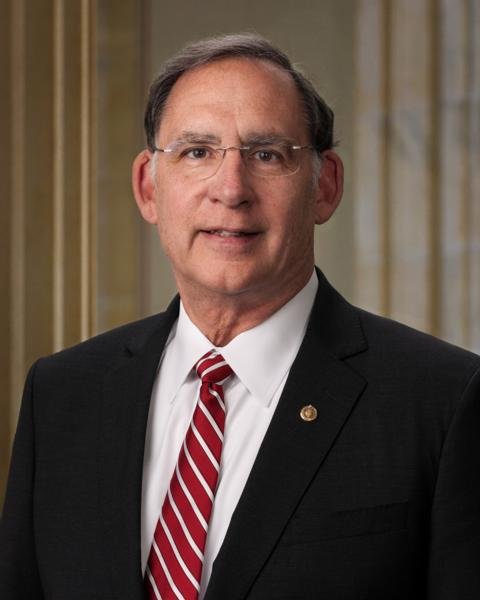The safest way to view fireworks is to attend a professional show. Jesse Bocksnick, extension 4-H outdoor skills coordinator for the University of Arkansas System Division of Agriculture, said people prepared to take on the risk of legally setting off their own should make safety their main priority.
“It’s as American as apple pie to shoot fireworks around the Fourth of July,” Bocksnick said. “It’s a tradition. Every kid loves to do it, and they ooh and ah, but fireworks are actually really dangerous. Everybody gets gung-ho about them, but safety is of the utmost importance.”
City and county ordinances regarding the legality of setting off fireworks vary from area to area. For example, in Little Rock, residents are explicitly prohibited from possessing, selling, manufacturing or using fireworks within the city limits. Bocksnick said it’s also important to keep an eye out for burn bans in dry areas of the state.
“The main thing I would do if you have any questions — and especially if you’re in a populated area — is get ahold of the county or city and make sure you’re not violating any ordinances,” Bocksnick said.
Ensure quality when buying
When it comes to purchasing fireworks, Bocksnick advised buying from a reputable, licensed dealer.
“If they’re selling them out of the back of their car, it’s probably not a good place to be getting them,” Bocksnick said. “Trust your gut instinct. If it doesn’t look like a reputable dealer and something feels a little off, I wouldn’t buy from those folks.”
Bocksnick suggested looking instead for dealers who have built permanent structures, such as warehouses, for their businesses.
“If they’ve invested that much, and they have facilities that are climate controlled, where those fireworks do not draw moisture, they’re likely being handled safely and properly,” he said.
This can also help ensure customers are not purchasing damaged or expired fireworks, which can cause accidents or injury. Bocksnick said this also applies to any fireworks purchased last year and stored at home throughout the year.
“If they got wet, if there’s a tear in the package or the fire mechanism looks a bit rotten, don’t use them,” he said. “It’s not worth it. I’ve actually seen one of those go off prematurely, and it’s not funny. Even if no one gets hurt, it’s still not funny, because you’re dealing with small explosives, and in some cases, large explosives.”
Safety first and foremost
Practice common sense and good judgment when using fireworks around children and talk to them about the dangers of improper use, Bocksnick said.
“Make sure they’re age-appropriate,” he said. “When you start handling these fireworks, I wouldn’t just turn a 4-year-old, a 5-year-old, or a 10-year-old loose with whatever they wanted. Talk to your kids so we can avoid those tragedies that happen every year. Somebody loses their hearing, somebody loses the end of a finger or somebody gets blinded because they get too close to one or it goes off in the wrong area.”
Check package instructions to ensure the firework is pointed in a safe direction, he said.
“Make sure that you know exactly how the firework fires,” Bocksnick said. “Don’t assume that you know exactly which direction it’s going to go, because some say face up or face down, and I’ve seen folks get those backwards when they weren’t paying attention.”
Bocksnick suggested adults adhere to the following rules when setting off fireworks:
Never light them indoors.
Mark off a perimeter for spectators.
Light one firework at a time.
Have a fire extinguisher or water handy.
Have a first aid kit on-site.
Anyone using fireworks or standing nearby should wear protective eyewear.
Adults should also never use fireworks while impaired by drugs or alcohol.
Keep a bucket of water ready, like those used at a gun range, and place devices that don’t explode in the water. Do not try to relight defective devices, and never lean over them.
Even sparklers, often considered safe for children, can cause serious injuries and accidents. According to the National Fire Protection Association, sparklers account for roughly 25 percent of emergency room fireworks injuries. They can burn at up to 1,200 degrees Fahrenheit in some cases — hotter than the temperature at which glass melts.
That’s why no one should ever hold lighted fireworks in their hands or point fireworks at another person, including bottle rockets and Roman candles.
“That’s a good way to burn and ruin your clothes at least, and at the worst, you could really injure someone,” Bocksnick said. “All kinds of terrible things happen when you start shooting fireworks at each other.”
For families living in neighborhoods and other areas where residents are setting off fireworks from the street or sidewalk, it’s also important to keep a close eye on children who may be running into the street.
“One place that folks like to shoot fireworks off is on a hard, flat surface, so that’s pavement,” Bocksnick said. “Pavement is the road, most of the time. And when kids are playing in the streets, they’re paying more attention to shooting off fireworks than to staying out the road.”
For more information about fireworks safety, visit the National Safety Council’s Fireworks Safety Tips page.
To learn about extension programs in Arkansas, contact your local Cooperative Extension Service agent or visit www.uaex.uada.edu. Follow us on X and Instagram at @AR_Extension. To learn more about Division of Agriculture research, visit the Arkansas Agricultural Experiment Station website: https://aaes.uada.edu. Follow on X at @ArkAgResearch. To learn more about the Division of Agriculture, visit https://uada.edu/. Follow us on X at @AgInArk.





















